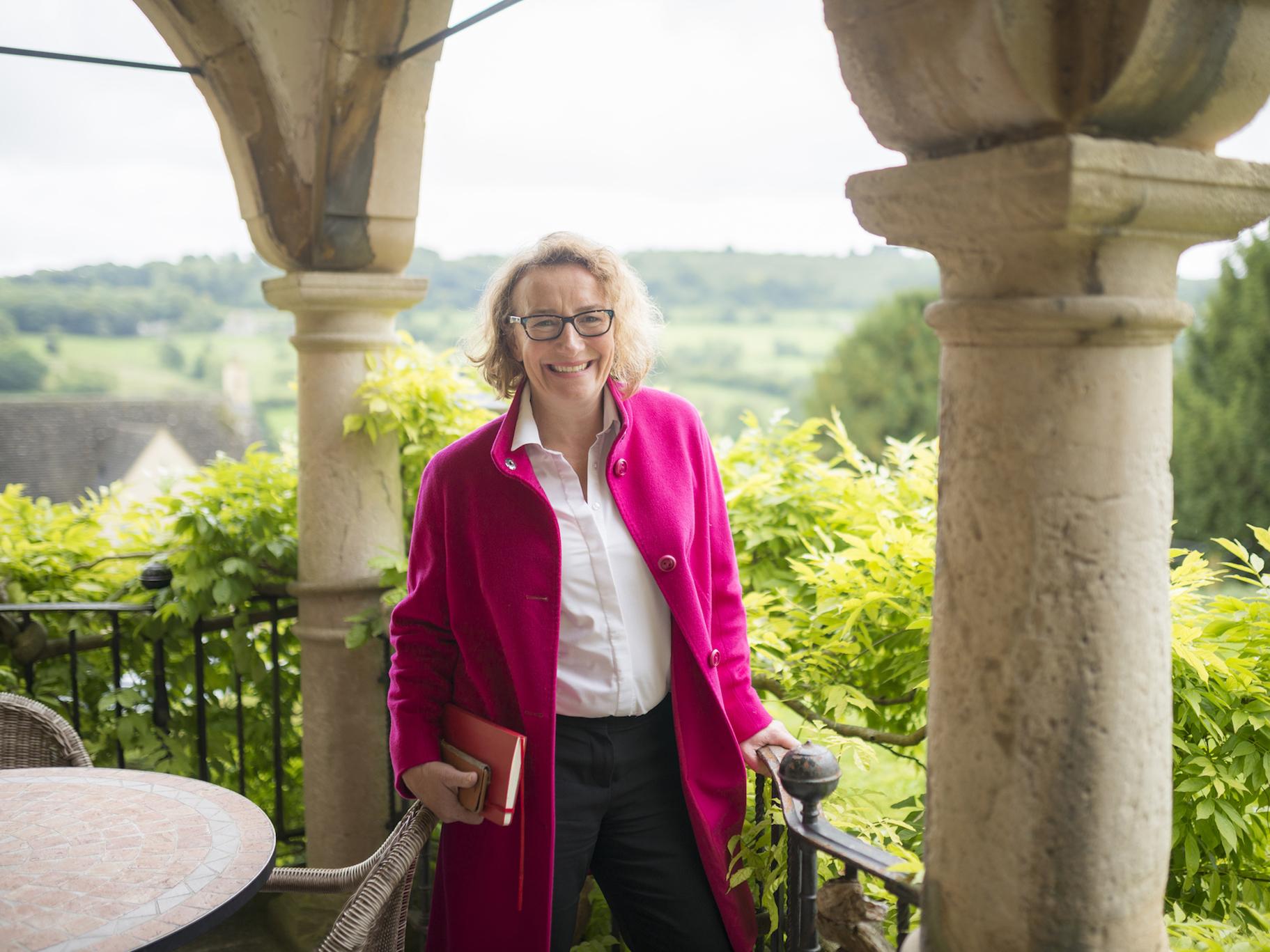‘The job is not done’: Meet the woman changing the conversation around climate change
Good Energy, launched 20 years ago, was one of the first green energy suppliers. Founder Juliet Davenport talks to Zlata Rodionova about the challenges she has faced in that time


New scientific research, a string of demonstrations across the world and the intervention of climate activist Greta Thunberg have all helped push climate change higher up the political and news agendas. But environmental issues rarely made the headlines in the 1990s.
“At the time research on renewable energy was very much focused on technology and government policy, but it didn’t really focus on consumers,” Juliet Davenport, founder and chief executive of Good Energy, tells The Independent.
Good Energy was one of the first “green” electricity supply companies with an ambition to help tackle climate change by giving people the opportunity to choose electricity generated from 100 per cent renewable sources.
Davenport launched the company in 1999, at a time when 98 per cent of the UK’s electricity was non-renewable and people had little choice about where their energy came from.
“Nobody knew what a start-up energy company would look like. The legislation was slightly against renewables at the time and it was a real challenge to get someone to fund us. Luckily we had some initial entrepreneurial investors who helped us with funding in the early stages,” she says.
The picture is very different today. In 2019, the company’s overall customer number rose to 261,000, pushing revenue up 2.8 per cent to £63.5m, on top of a slight uptick in operating profits to £4.8m.
Davenport was awarded an OBE for services to renewables in 2013 and two years later was appointed to the board of the Natural Environment Research Council.
“One of the things we’re trying to do as a company today is show consumers and businesses how they can support renewables. What’s really interesting is that we’re starting to see shifts in behaviour that will introduce it as part of the equation.
“For example, we’re going to see more and more people move to electric cars, maybe even electric bicycles and obviously you have to plug that in and whilst doing that you then ask yourself – ‘where’s my energy coming from?’. The conversation is going to be much more about the ‘how to’ than the ‘why’.”
Davenport’s own environmental journey started in Merton College in Oxford where she studied physics. After reading an article about climate change, she took up astrophysics as an option and really saw the climate emergency for the first time.
“It’s like a spider’s web, you can’t believe the intricacy of it, the fragility of it but also the strength of it. Our atmosphere is very similar to that, it’s incredibly complex, it’s incredibly fragile, but it’s also strong because it keeps this planet as we are – that was my discovery.”
Her career began on a winding path. She first started working in PR, which gave her the opportunity to perfect her communication skills.
Still thinking about how she could make a positive impact on the environment, she decided that studying economics would enable her to address the root cause of the climate problem.
What’s quite interesting is that we first had to try and change how the energy market worked, but we also had to change the way people thought about financing this whole green movement. Many of our customers are also our investors – they believe in what we’re doing to tackle climate change
This prompted her to complete a masters degree in economics through evening classes at Birkbeck College.
“These two experiences gave me a capability a lot of scientists don’t necessarily have, which is to take some of your message out to the world and be able to really talk about it and explain it.”
Before entering the private sector, Davenport worked at the European Commission on energy policy and later at the European Parliament before launching Good Energy.
The company acquired its first 3,000 customers quite quickly but it had tough start. After one of its investors pulled out, Davenport had to turn to alternative funding models and by the end she managed to crowdfund £600,000 in just two weeks. Today the company is still 60 per cent owned by its customer base.
“What’s quite interesting is that we first had to try and change how the energy market worked, but we also had to change the way people thought about financing this whole green movement. Many of our customers are also our investors – they believe in what we’re doing to tackle climate change.”
When she first started, the company’s primary challenge was to get the market to function, but the future is now about how Good Energy can help its customers in their homes or workplaces to absolutely transform to low carbon energy.
According to one of the company’s own surveys of 2,000 people, conducted in October last year, 65 per cent are prepared to make changes to their life to live more sustainably.
But 42 per cent say that it is not clear what action they could take that would make a difference.
Her tips to consumers who want to make a difference is first to switch suppliers to neutral energy, then to look at their everyday transport (do you use a car? Can you change to an electric car or cycle?) and how they control their heating at home. But she admits there’s still a lot of work to do.
“It’s a massive communications job that needs to be done across climate change, energy, markets – that job is not done,” Davenport says.
Unflinchingly optimistic, her ultimate dream and mission would be to see a solar panel on every roof. “I am a people optimist because I believe people can make that shift. What I am pessimistic about is our political system, which doesn’t help us and I think incumbent industries will also slow us down and get in the way. There are no visionaries, that’s what I want to see more of.”
As one the rare leading women in the STEM industry, Davenport says her company’s diversity is one of the things she is the most proud of in her career. In 2018, some 40 per cent Good Energy’s board and executive team were women, and the firm’s overall workforce was made up of 52 per cent women to 48 per cent men.
“We need balance across all our society. If you only have one part of the society represented you get a skewed version of what we should be doing in the industry.
“I think a lot of customers joined us because I was a woman and I was challenging the status quo, so that was really powerful. Of course, we don’t know whether it would have been easier to get investors if I hadn’t been a woman. But the proof is in the pudding, 20 years on we are still here and a lot of people are not.”
Join our commenting forum
Join thought-provoking conversations, follow other Independent readers and see their replies
Comments